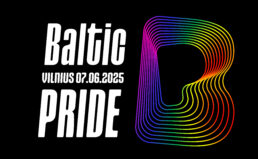The Grand Chamber of the European Court of Human Rights (ECtHR) delivered its judgment in the case of Macatė v. Lithuania (application no. 61435/19) at a public hearing on 23 January 2023 in the Human Rights Building, Strasbourg.
The applicant, Neringa Dangvydė Macatė (1975-2020) was an openly lesbian children’s author who wrote a book titled “Gintarinė širdis” of six original fairy tales in 2013. These stories included characters from various social groups, such as Roma, persons from different racial backgrounds, persons with disabilities, divorced families, some of these stories revolved around such topics as emigration and bullying.
Two of the six fairy tales contained story lines of romantic relationships and marriages between persons of the same sex. Soon after the book’s publication, the Inspectorate of Journalistic Ethics concluded that the two fairy tales which depicted such relationships did not comply with section 4 § 2 (16) of the Act on the Protection of Minors from Detrimental Effects of Public Information.
It states states that any information which “expresses contempt for family values” or “encourages a different concept of marriage and creation of family than the one enshrined in the Constitution or the Civil Code” is considered as having a negative effect on minors. The publisher subsequently added a warning label that the book might be harmful for children under 14 years of age. The applicant lodged civil proceedings against the publisher, but courts dismissed her claim, finding that the publisher had acted in line with the domestic law concerning the concept of family and protection of minors from harmful information. The application was lodged with the European Court of Human Rights on 22 November 2019.
“Anti-Gay Propaganda” provision has a long history in Lithuania and has been applied with the view of limiting LGBTI related content numerous times.
In July 2013 the Lithuanian Gay League, lodged a complaint with the Inspectorate against Lithuanian National Radio and Television, the national broadcaster. The complaint concerned the broadcaster’s decision to restrict the distribution of two promotional videos about the Baltic Pride March: the broadcaster had decided that one of the videos could only be shown from 9 p.m. and that it had to be marked with a sign indicating that it could be harmful to children under the age of 14, and the other video could only be shown from 11 p.m. and had to be marked with a sign indicating that it was only suitable for adults. The broadcaster had based that decision on the grounds that the videos might violate section 4 § 2 (16) of the Minors Protection Act. In September 2013 the Inspectorate dismissed the complaint, finding that the broadcaster had not had any obligation to broadcast the videos in question and thus, by refusing to broadcast them in the way desired by the organisers of the Pride March, it had not breached any laws.
On October 25th, 2014, LGL appealed to the European Commission about Lithuania’s failure to fulfill its obligations under EU law. In the official complaint prepared in collaboration with the LGBTI organization ILGA-Europe, it was stressed that Lithuania was in violation of the law on freedom of speech and expression enshrined in the EU contract, EU Charter of Fundamental Rights and Directive on Audiovisual Media Services.
On November 6 2018, celebrating their 20th anniversary, a well-known Lithuanian pop-rock band Skamp released a new single “Love Me Like There’s No Tomorrow” alongside music video which Lithuanian television refused to broadcast as it portrayed same-sex couples showing affection.
In its long-awaited judgment in the case of Macatė v. Lithuania, the ECtHR concluded that “the measures taken against the applicant’s book sought to limit children’s access to information depicting same-sex relationships as essentially equivalent to different-sex relationships, labelling such information as harmful, and concludes that those measures did not pursue a legitimate aim under Article 10 § 2 of the Convention.
ILGA-Europe (the International Lesbian, Gay, Bisexual, Trans and Intersex Association), ARTICLE 19 and Professor David Kaye, acting jointly, and Háttér Society were granted leave to intervene in the written proceedings as third parties.
“Certain politicians who claim that this law is no longer applied in a discriminatory manner also say that their further decisions will be influenced by the outcome of this case. Therefore, this is a good opportunity for the decision makers to ensure that the legitimate expectations of the LGBTI community to live with dignity in Lithuania will be realized. It is startling that the responsible institutions have not yet put their efforts to abolish the discriminatory provisions, which, in terms of its content, are virtually identical to the antidemocratic “anti-Gay Propaganda” laws that exist in Hungary and Russia,” noted Vladimir Simonko, Executive Director of the National LGBTI Rights Organization LGL.




